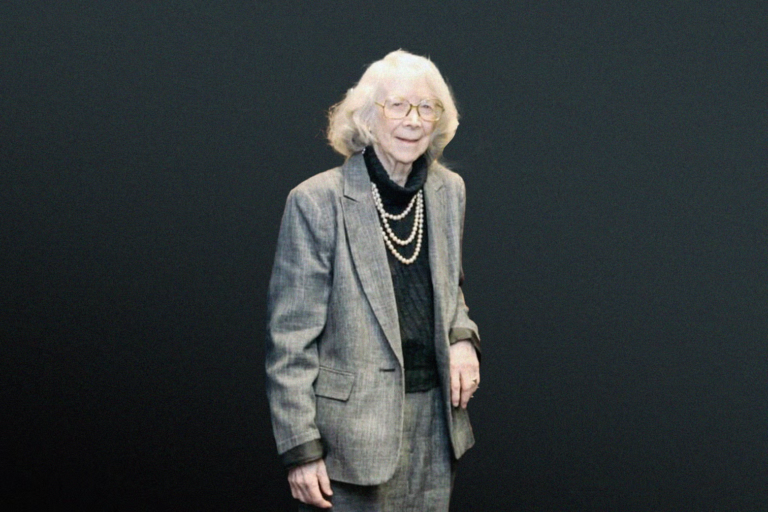In the vast landscape of American jurisprudence, certain figures stand out for their exceptional contributions, both in shaping legal precedents and advancing the cause of justice. Among these luminaries is Federal Circuit Judge Pauline Newman, whose distinguished career and groundbreaking decisions have left an indelible mark on the legal profession. This article delves into the life, accomplishments, and enduring legacy of Judge Pauline Newman, highlighting her pivotal role in shaping the trajectory of intellectual property law and her impact on the broader legal community.
Early Life and Education
Pauline Newman was born on February 20, 1927, in New York City. From an early age, she displayed a keen intellect and a passion for learning, traits that would serve her well in her later pursuits. After completing her undergraduate studies at Columbia University, where she excelled academically, Newman went on to earn her law degree from New York University School of Law. During her time in law school, she distinguished herself as a diligent student with a sharp legal mind, foreshadowing the illustrious career that lay ahead.
Career Trajectory
Following her graduation from law school, Pauline Newman embarked on a career marked by a series of notable achievements and milestones. She began her legal career in private practice, where she honed her skills as an attorney and gained valuable experience in various areas of the law. However, it was in the realm of intellectual property law that Newman would truly make her mark.
In 1984, President Ronald Reagan appointed Pauline Newman to the United States Court of Appeals for the Federal Circuit, a momentous occasion that marked the beginning of her tenure as a federal judge. Newman’s appointment was historic, as she became the first woman to serve on the Federal Circuit, a distinction that underscored her trailblazing status in the legal profession. Over the years, Newman’s jurisprudence would come to be characterized by her meticulous attention to detail, her rigorous analysis of complex legal issues, and her unwavering commitment to upholding the principles of fairness and justice.
Landmark Decisions and Legal Legacy
Throughout her tenure on the Federal Circuit, Judge Pauline Newman authored numerous opinions that have had a profound impact on intellectual property law and beyond. One of her most notable decisions came in the landmark case of Diamond v. Chakrabarty (1980), in which the Supreme Court held that living organisms could be patented. Newman’s opinion in the case, which affirmed the patentability of genetically engineered microorganisms, was widely praised for its clarity of reasoning and its adherence to established legal principles.
In addition to her seminal work in the field of patent law, Judge Newman has also made significant contributions to other areas of the law, including administrative law, civil procedure, and international trade. Her opinions are celebrated for their scholarly rigor, their persuasive argumentation, and their profound impact on the development of legal doctrine.
Judicial Philosophy and Impact
Throughout her career, Judge Pauline Newman has been guided by a steadfast commitment to the rule of law and the principles of judicial integrity. She has earned a reputation as a jurist of the highest caliber, renowned for her intellect, her integrity, and her unwavering dedication to the pursuit of justice. Newman’s jurisprudence is characterized by a deep respect for precedent, a commitment to reasoned decision-making, and a profound understanding of the complexities of the law.
In addition to her accomplishments as a jurist, Judge Newman has also been a trailblazer and a role model for women in the legal profession. As the first woman to serve on the Federal Circuit, she has shattered glass ceilings and opened doors for generations of female attorneys who have followed in her footsteps. Her pioneering spirit and her tireless advocacy for gender equality have inspired countless individuals to pursue careers in law and to strive for excellence in their chosen fields.
Conclusion
In conclusion, Federal Circuit Judge Pauline Newman stands as a towering figure in American jurisprudence, whose contributions to the law have left an indelible mark on the legal profession. From her groundbreaking decisions in the field of intellectual property law to her trailblazing role as the first woman to serve on the Federal Circuit, Newman’s legacy is one of excellence, integrity, and enduring impact. As we reflect on her remarkable career and her profound contributions to the law, we are reminded of the power of principled leadership and the enduring legacy of those who dare to challenge the status quo and pave the way for a more just and equitable society.
Frequently Asked Questions about Federal Circuit Judge Pauline Newman
Who is Federal Circuit Judge Pauline Newman?
Federal Circuit Judge Pauline Newman is a distinguished jurist who has served on the United States Court of Appeals for the Federal Circuit since 1984. Born on February 20, 1927, in New York City, Judge Newman has had a prolific career marked by groundbreaking decisions and significant contributions to American jurisprudence.
What are Judge Newman’s notable achievements?
Judge Pauline Newman is renowned for her pioneering role as the first woman to serve on the Federal Circuit. Throughout her tenure, she has authored numerous opinions that have had a profound impact on intellectual property law and other areas of the law. Judge Newman’s landmark decisions, including her opinion in the case of Diamond v. Chakrabarty (1980), have helped shape the trajectory of legal doctrine and have established her as a leading authority in her field.
What is Judge Newman’s judicial philosophy?
Judge Newman is known for her meticulous attention to detail, her rigorous analysis of complex legal issues, and her unwavering commitment to upholding the rule of law. Her jurisprudence is characterized by a deep respect for precedent, a dedication to reasoned decision-making, and a profound understanding of the complexities of the law. Judge Newman’s commitment to fairness and justice has earned her widespread acclaim and recognition within the legal community.

